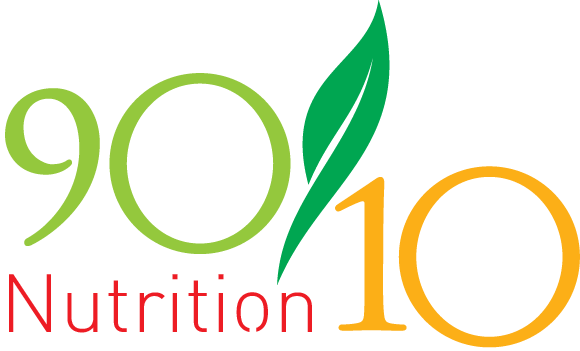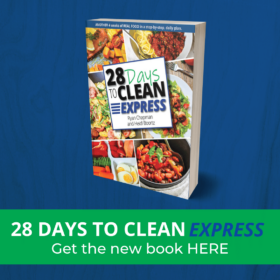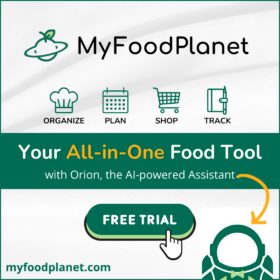I did quite a bit of reading this last year and so I decided I would share with you what I read in 2018. I read some by way of physical books but most of it was by audio.
I love audio books! I can get in a nice relaxing walk or even an interval run and absorb valuable information at the same time. It is literally one of the best “two birds with one stone” scenarios that I can think of. If you haven’t tried it, I URGE you to give it a shot. I’ve absorbed hours of information in the last year while also getting in miles and miles of physical activity.
Of course, it’s even better when the weather is mild and pleasant, but with the right gear, you can do it just about any time of year. In fact, if the weather is bad enough where you live, you could possibly even do it on a treadmill or track at a gym. You could also do this on the way to or from work in the car if you don’t want to (or cannot) combine it with exercise.
About This List
This is NOT every single book I read in 2018. For this list, I’ve stuck with books that I have read that have something to do with health and well-being and also might be interesting to this audience. For example, I also read a book on how to read and evaluate scientific papers, but I barely made it through that one for school!
I’m not sharing these books to push a particular political, religious, or even nutritional view. They are simply books that I have read this year and my thoughts on them.
Also, to be completely up front (in addition to the disclaimer at the top of this page), each of the images and titles of the books below is linked directly to Amazon through our affiliate account. That simply means that you can click any of the images of the books (or the titles above them) and you’ll be taken to the order page on Amazon. Should you choose to purchase the book, we will get a commission from Amazon. The price does not change for you and you are free to order it some other way if you wish.
I give my honest opinion of each book and try to help you decide if it is something you might like to read as well. Some of these books were extremely helpful to me this year and others were just OK. You’ll get the sense as I describe each one.
At the bottom, I’ve also put a list of the books I have on tap so far for 2019.
In comments, I’d love to hear what you read in 2018 and what you are planning to read in 2019 even if it isn’t health related!
THE OMNIVORE'S DILEMMA
Michael Pollan’s The Omnivore’s Dilemma is a book that I think the entire country should read, to be perfectly honest. If there is one single nutrition/food related book that I would ask you to read, this would have to be it. It’s not because it gives you all the answers to nutrition, but rather because it opens your eyes to what we’re dealing with in terms of our food system.
In this book, journalist Michael Pollan takes you on an extremely in-depth journey as he describes and participates in 4 meals from their origin (mostly the farm) to the table. The first meal is a McDonald’s fast food meal, the second is an “industrial organic” meal purchased from Whole Foods, the third is a meal almost entirely from a local farm in Virginia (Joel Salatin’s Polyface Farms), and the final meal is a hunter-gatherer meal that he hunts and forages for himself.
The author not only gives detailed history and information about such things as CAFOs (combined animal feed lots) and mono-cropping of things like corn, but he also wrestles with the moral, nutritional, and environmental arguments associated with farming, meat-eating, pesticides, and more.
I highly recommend this book.
THE BIG FAT SURPRISE
The premise of this book is that the “diet-heart hypothesis” (that is, that dietary fat is to blame for heart disease) is based on shaky science. In other words, the old idea that cholesterol is the driver of heart disease and therefore comes from eating too much red meat and saturated fat, is incorrect.
At the time of this blog, this isn’t even really a new or crazy idea. The paleo/primal movement helped to move us away from that line of thinking and now the keto movement is gaining incredible popularity as people essentially completely ignore the conventional wisdom that made saturated fat the ultimate enemy.
While I didn’t agree with everything in this book (I think I’ve established that I’m not a diehard keto fan), I did think that the author did a great job of showing how several major players influenced the American diet for the last 50+ years on ideas that just don’t seem to hold up. There was money, there were trips, there were food corporations involved, there were overbearing personalities, and much more. It’s like a soap opera. This book will definitely make you think twice about what that study you see posted on Facebook really means and how data can easily be used in different ways.
T IS FOR TRANSFORMATION
Yes. Shaun T. The Insanity workout DVD guy from Beachbody.
To be honest, I wasn’t expecting something really amazing from this book. I was expecting a fairly short motivational book (kind of like the 45 minute Insanity workout of books), but I underestimated Shaun.
I’ve read a lot of motivation, business, fitness, and nutrition books over the past few years and this one can hold its own in the field and even has some elements that others don’t have. Shaun’s story is pretty incredible (painful) and he knows how to tell it and help you apply what he learned.
This is a book that is intended to help you transform “ya life” (as Shaun would say) in any way you want (emotional or physical). He doesn’t just cover the surface stuff like having a plan, setting goals, creating habits and all that. He tackles the inside stuff that makes it possible. That part is always hard, but it’s essential.
I recommend the audio FOR SURE on this one. Have Shaun read this one to you himself.
ATOMIC HABITS
As I write this, I’m not even quite done with this one. In fact, I’m only half way through it. I still feel safe recommending it though because it was recommended to me by a trusted friend and it’s been awesome so far.
I went into this one thinking it was going to be just like The Compound Effect by Darren Hardy, which I read 4 or 5 years ago. That really didn’t excite me too much because, while The Compound Effect has some great nuggets, it breaks the concepts down to be a little too simple. Basically, it feels like it says, “The difference between successful people and unsuccessful people is small daily habits.” While that’s great in theory, it ignores way to many things about environment for my liking and tends to bring shame to those that do the same tasks but don’t have the same results.
Atomic Habits has been different though. It’s been a great combination of the types of habits that create success, the science behind why they work, the environmental factors that affect outcomes, and more. It seems to strike a much better balance.
I think the way this book is laid out can help people build better habits and see more success. This could be a great first read for 2019 for you.
DARE TO LEAD
I don’t think a book recommendation list of mine would be complete without at least one Brené Brown book. I’m a huge fan and I’ve written blogs about her work before HERE and HERE. I’ve read almost all of her books and also completed her online leadership course (Daring Leaders, Inc). I consider her one of the great thinkers of our current time.
This book came from a lot of the information that she shared in the online leadership course I took last year. So, this wasn’t all new information, but it was awesome.
Now, if you’re not in a leadership role at work or somewhere else, this may not be the place to start with her work. I always recommend people start with The Gifts of Imperfection or Daring Greatly if you haven’t read anything by Brené. Then move on to Rising Strong and Braving the Wilderness.
However, if you are in a place of leadership, you can start right here. I can’t recommend her work enough.
UNCONVENTIONAL MEDICINE
This book is aimed more at a clinical audience. It’s written for medical doctors, chiropractors, nutritionists, acupuncturists, and other clinicians mostly. I’m not sure how many people of that nature read this blog, but I felt I should include it here.
Chris argues for a more holistic system of health care. It’s not necessarily “holistic” like most people might think though. You might tend to think of holistic as meaning herbs in place of medicine. While that can be part of it, and Chris does advocate for less medicine in general, this book is about a less fragmented and more integrated form of health care where practitioners work together to look at the entire picture of the patient’s health.
Chris makes some excellent arguments in this book and does a great job of showing how this idea can benefit both patients AND practitioners. I didn’t find it to be a doctor-bashing book, but rather a call to doctors and other practitioners to consider leaving the conventional system.
KISS THE GROUND
This book is all about the soil. There is some overlap with information on farming found in The Omnivore’s Dilemma mentioned above, but this book provides even more information. It makes the case for the soil being the key to fixing our environment, our food supply, and our health.
Tickell goes into great detail describing how the health of our soil is largely to blame for climate change, degraded food nutrients, and even the localized droughts like California has experienced recently. He makes the case that our farming practices (tilling, removing the animals from the farms, using chemical fertilizers and pesticides) have deteriorated the health of soil so much that we create our own droughts from desertification.
He visits several farmers, including the author of the next book on this list, that are farming in ways that increase soil health, sequester more carbon from the atmosphere, and improve the nutrients in the foods grown. This is what’s being called “Regenerative Agriculture”.
DIRT TO SOIL
I picked up this book before I even finished Kiss The Ground. Gabe is one of the farmers interviewed by Tickell and I came to find out that he had a book of his own.
Gabe’s book is written more for “producers” (as he calls them) or other farmers and ranchers looking to change their operation away from the tilling, mono-cropping, synthetic-spraying operations that often put them on government subsidies.
Since this isn’t really aimed at the average person looking to get healthier, this isn’t probably the first book most of you will want to read from this list, but you may just get hooked like I did after you read The Omnivore’s Dilemma.
My 2019 Reading List
Below is a list of the books I already have planned for 2019 that relate to health and well-being in some way. I imagine I’ll read more than this, so suggestions are welcome.
IN DEFENSE OF FOOD
When I finish Atomic Habits, I plan to move to this book. I enjoyed The Omnivore’s Dilemma enough that I’d like to see what else Pollan has to say. As I understand it, this one tends to actually give direction rather than just inform and make one ponder.
I’ve seen a couple of short video clips of him recently too and have liked much of what he says, so this should be interesting.
FOLKS, THIS AIN'T NORMAL
Joel is the owner of Polyface Farms in Virginia which is a centerpiece of one of the meals detailed in The Omnivore’s Dilemma. Joel considers himself a “grass farmer” and seems to farm in a way that matches much of what Tickell and Brown talk about in their books about soil. I’m interested to hear what Joel has to say.
WHY WE GET FAT
I’ve never read anything by Gary Taubes, but from what I understand, he has been one of the most prolific dissenters of the diet-heart hypothesis (saturated fat causes heart attacks). In fact, many critics claimed that Nina Teicholz simply ripped off Taubes’ work when she wrote The Big Fat Surprise. You can see her response here.
I’m interested to read some of his personal work. I’m not sure exactly what to expect.
















Comments (2)
Thank you for giving some suggestions for my reading list. Looking forward to reading a few of these.
[…] I’ve learned so much about nutrition. I’ve read several books recommended by Ryan (some that he recently blogged about) and have become more aware of not only how important ingredients are, but also how important the […]